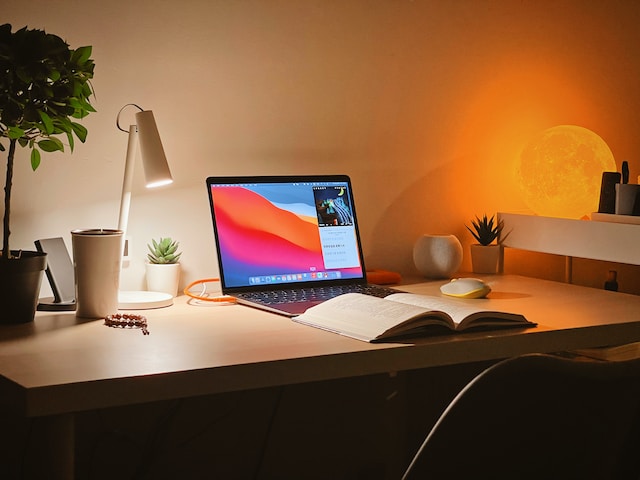Effective study skills have a very important part to play in academic success, by providing students with the tools needed to navigate the challenging journey of learning. In the busy world of education, as students, we are often required to tackle a variety of challenges, from information overload to the pressure of looming exams.
Developing good study habits is a necessity for all students, not just those aiming to top the class. Learning to study effectively, with intentional strategies and personalised approaches will help to relieve the stresses you face when preparing for assignments, tests and exams.
By learning the right techniques, you can transform your study sessions from mere obligations to powerful opportunities for comprehension and retention. Here are some of my top tips for creating the most effective study methods that work for you.
How to Prepare for Success
Success in academia is not solely determined by the volume of information one can absorb but by the efficacy of one’s study practices. Setting a schedule is not just about allocating time; it’s a commitment to prioritising learning. Each scheduled study session becomes a deliberate step toward mastery, allowing for a structured approach to coursework.
Set The Study Pace
Studying at one’s pace is a recognition of individuality in learning. The journey of education is not a race; it’s a personal expedition. Tailoring study speed to personal preferences fosters a deeper understanding of the material. This flexibility accommodates diverse learning styles, ensuring that the absorption of knowledge is not compromised by undue pressure.
Make Time to Rest
Rest is a silent ally in the quest for academic excellence. In a culture that often glorifies burnout, the importance of sufficient sleep cannot be overstated. A well-rested mind retains information more effectively, and the benefits extend beyond memory. Adequate sleep enhances cognitive functions, promoting sharper analytical skills and better problem-solving abilities.
Fight off Distractions
Silencing distractions is a battle against the modern sounds of notifications and digital temptations. An intentional effort to power down devices or employ apps that block access to social media is an investment in undivided attention. This conscious choice liberates the mind from the constant pull of notifications, allowing for a more immersive and productive study session.
Don’t Stress!
Stress, if left unchecked, can cripple the learning process. Recognising stress as a formidable foe, it’s imperative to incorporate stress-busting strategies into the study routine. Whether it’s through deep breathing exercises, light physical activity, or compiling a task list to declutter the mind, these techniques create a conducive mental environment for effective learning.
Create Your Perfect Study Space

The environment in which you study can significantly influence the quality of your learning experience. Choosing the right study spot is akin to selecting the stage for a crucial performance.
The balance lies in finding a place that is both comfortable and conducive to focus. Selecting a suitable study spot involves learning and understanding your personal preferences. While some thrive at a desk, others find inspiration on a couch or kitchen table.
It’s a delicate equilibrium, avoiding the allure of excessive comfort that might lead to a lull in productivity. The ideal setting strikes a balance between comfort and concentration.
A Quiet Space
Surroundings play a pivotal role in concentration. Peace and quiet are allies in the quest for undisturbed study sessions. If external factors like noise disrupt the learning flow, adapting becomes essential. Whether it’s relocating to a quieter area, seeking refuge in a local library, or embracing the subtle hum of a coffee shop, the focus should remain undeterred.
Fuel Up
Snacking is not just a gratification of taste buds but a strategic fueling of the brain. Opting for brain-friendly snacks such as nuts, fruits, and dark chocolate ensures sustained energy levels. These snacks not only satiate hunger but also provide essential nutrients that support cognitive functions.
Subtle Tunes
Music, when wielded judiciously, becomes a powerful tool. While lyrics might divert attention, instrumental music or specific genres can enhance concentration. It becomes a personalised soundtrack, elevating the study space into a realm where focus and rhythm intertwine.
Pick a Study Method That Works for You
Effective studying is not a one-size-fits-all endeavour. Instead, it requires a tailored approach, acknowledging individual learning styles and preferences.
Two well-known study methods are SQ3R and THIEVES. Both of these methods offer diverse strategies to enhance comprehension and retention.
SQ3R Method:
SQ3R stands for Survey, Question, Read, Recite, and Review. This method is a comprehensive approach to studying that promotes critical thinking.
1. Begin with a survey of the material, focus on headings, bold print, and diagrams.
2. Questions related to the topic are then formulated, guiding the reading process.
3. Actively engaging with the text follows by reading carefully and seeking answers to the pre-formulated questions.
4. The crucial step of recitation involves creating the answers and reinforcing understanding.
5. Finally, conduct a review of the material, including a re-reading of the text and a review of personal notes, this step will solidify the learning.
THIEVES Method:
The THIEVES approach is particularly useful for preparing to read information. It involves seven pre-reading steps: Title, Headings, Introduction, Every first sentence in a section, Visuals and vocabulary, End questions, and Summary.
As you progress through these steps, thought-provoking questions arise, setting the stage for effective comprehension. The emphasis on these specific elements primes your mind to absorb information more strategically.
Effective Study Skills
Developing effective study skills involves more than mere reading; it requires active engagement and strategic approaches to enhance your comprehension and retention of the content you are learning.

Highlight Key Concepts
The act of highlighting key concepts during reading serves multiple purposes. It not only helps in staying engaged with the material but also serves as a quick reference during review sessions.
Highlighting will help you to identify and prioritise essential information. When preparing for exams, a quick review of highlighted sections and notes becomes an efficient way to focus on critical points.
Summarise Important Details
Summarising information is a powerful tool for reinforcing learning. When you are asked to put the information you’re learning into your own words, it means you must process and distil the material to its core elements.
This process not only aids in memory but also enhances understanding. Writing summaries in different formats, such as paragraph form or outline form, allows you to experiment with various ways of organising and presenting information.
Create Flashcards
Flashcards offer a dynamic method for self-quizzing and reinforcing learned information. The process of creating flashcards involves distilling information to its most crucial elements.
Forcing yourself to condense concepts onto small cards will promote clarity and focus. The portable nature of flashcards allows for quick reviews during spare moments, maximising study time efficiency.
Improve Recall with Association
Memory often benefits from association and imaginative connections. Creating mental associations, such as catchy tunes, mnemonic phrases, or humorous connections, helps anchor new information to existing knowledge.
Visualisation techniques, like mind maps illustrating relationships between concepts, provide a visual scaffold for better recall. Breaking down information into smaller, manageable associations speeds up the learning process.
Absorb Information in Smaller Chunks
The human brain is more adept at absorbing information when presented in smaller, digestible chunks. This principle aligns with the concept of dividing complex information into manageable parts. By breaking down lists or topics into smaller components, you will be able to focus on mastering one segment at a time, promoting deeper understanding and retention.
Part 5 – How to Study More Efficiently (Approx. 300 words): Explore the benefits of taking regular breaks and the significance of taking notes in class. Emphasise the importance of starting with the toughest assignments.
Key Takeaways
In the pursuit of academic excellence, mastering effective study skills is the key to unlocking your full potential.
To capture the core of our investigation:
1. Strategic Planning: Schedule your study time, tailor it to your pace, and acknowledge the importance of quality rest.
2. Optimal Study Environment: Craft a perfect study space, minimise distractions, and utilise background sounds and snacks to enhance focus.
3. Versatile Study Methods: Embrace study methods like SQ3R, PQ4R, and THIEVES, adapting them to your unique learning style. Navigate the challenges of online learning with thoughtful strategies.
4. Active Engagement: Actively highlight, summarise, and create flashcards to deepen your understanding. Leverage association and tackle information in smaller, more manageable chunks.
Throughout your academic journey, it is important to remember that success is not final, and failure is not fatal: It is the courage to continue that counts. Implement these study skills, persevere through challenges, and let the journey of learning shape your success.
Every study session is a step closer to realising your goals. Stay focused, stay determined, and watch your efforts transform into achievements. Your academic journey is a marathon, not a sprint—celebrate every milestone along the way.
